Belgium joins South Africa’s genocide case against Israel at ICJ
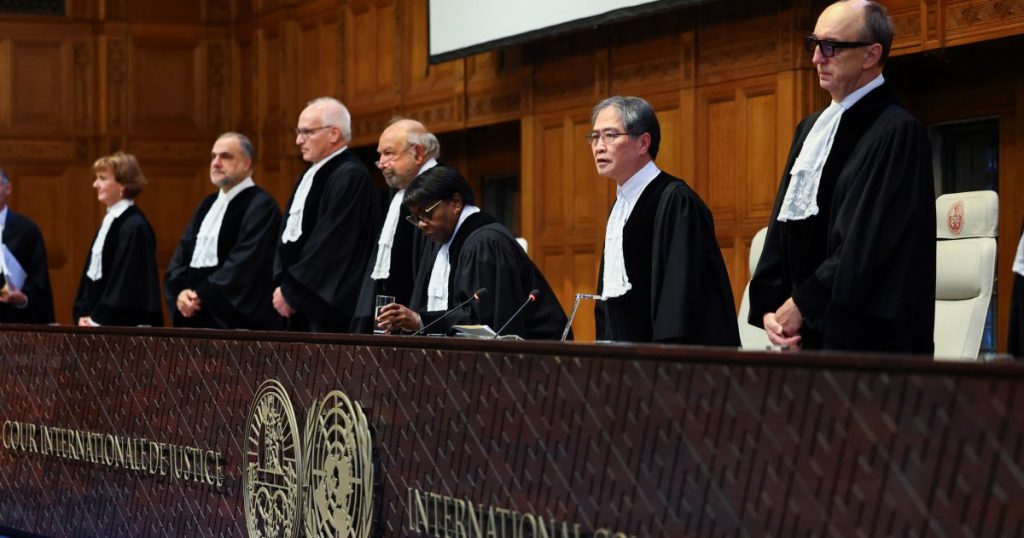
Other countries, including Brazil, Colombia, Ireland, Mexico, Spain and Turkiye, have already joined the case in The Hague. Published On 23 Dec 202523 Dec 2025 Click here to share on social media share2 Share Belgium has formally joined the case launched by South Africa at the International Court of Justice (ICJ) alleging Israel is committing genocide in the Gaza Strip. In a statement on Tuesday, the ICJ – The Hague-based highest court of the United Nations – said Belgium had filed a declaration of intervention in the case. Recommended Stories list of 4 itemsend of list Other countries, including Brazil, Colombia, Ireland, Mexico, Spain and Turkiye, have already joined the proceedings. South Africa brought the case in December 2023, arguing that Israel’s war in Gaza violates the 1948 UN Convention on the Prevention and Punishment of the Crime of Genocide. Israel has rejected the allegations and criticised the case. While a final ruling could take years, the ICJ issued provisional measures in January 2024 ordering Israel to take steps to prevent acts of genocide in Gaza and to allow unimpeded access for humanitarian aid. The court’s orders are legally binding although it has no direct mechanism to enforce them. The ICJ also said Israel’s presence in occupied Palestinian territory is unlawful and its policies amount to annexation. Israel has continued its assaults in Gaza and the occupied West Bank despite the rulings and growing international criticism while advancing plans to seize large parts of Palestinian territory. Meanwhile, the United States and several of its European allies continue to provide military and financial support to Israel. Washington has rejected the merits of South Africa’s case, and US lawmakers have criticised the country and issued threats against it. Advertisement The US has also imposed sanctions on members of the International Criminal Court (ICC), which has issued arrest warrants against Israeli Prime Minister Benjamin Netanyahu and former Defence Minister Yoav Gallant. Belgium was also among a group of countries that recognised the State of Palestine in September. Nearly 80 percent of UN member states now recognise Palestine. Since a ceasefire began on October 10, the Palestinian Ministry of Health in Gaza said, Israel has killed at least 406 Palestinians and injured 1,118 in the enclave. Since the start of the war on October 7, 2023, the ministry said, at least 70,942 Palestinians have been killed and 171,195 wounded. Adblock test (Why?)
How will Syria deal with its growing security challenges?
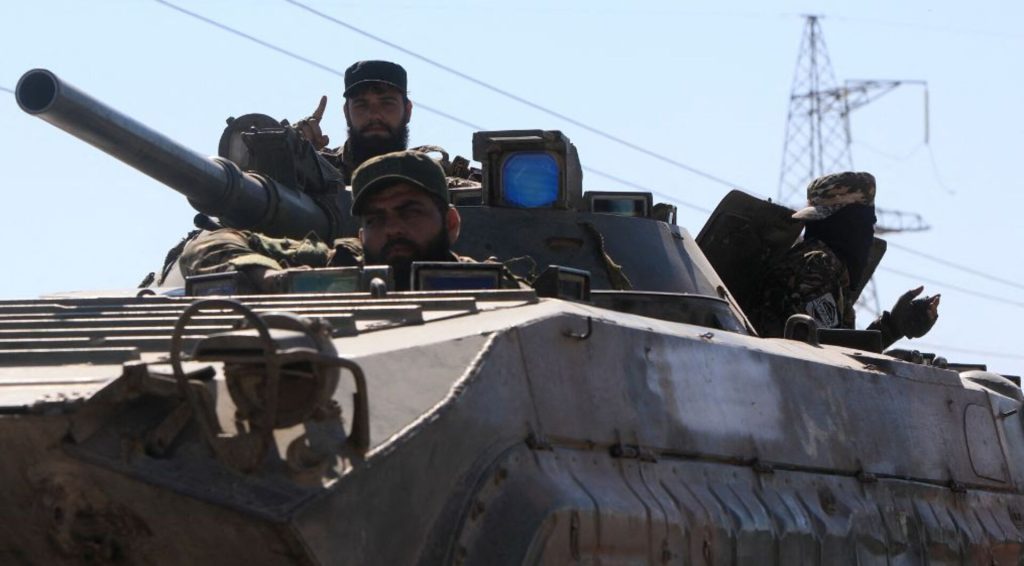
Renewed fighting between army and SDF highlights volatility. As the year comes to an end, a deal between the Syrian government and the Kurdish-led Syrian Democratic Forces was expected to come into force. Instead, fighting has erupted between the two sides in the northern city of Aleppo. They later agreed to stop the fighting, while blaming each other for the violence. That deal was supposed to lead to the SDF integrating with the army, but it is stalling on how that should be implemented. This renewed tension comes as Damascus faces other threats, ranging from ISIL (ISIS) to recurrent conflicts with the Druze community and continuing attacks by Israel. So what does this complex security situation mean for Syria, a year after the fall of Bashar al-Assad? Presenter: Dareen Abughaida Guests Haid Haid – Researcher at Chatham House Steven Heydemann – Professor and Middle East Studies programme director at Smith College Omer Ozkizilcik – Nonresident fellow for the Syria project in the Atlantic Council’s Middle East programme Published On 23 Dec 202523 Dec 2025 Click here to share on social media share2 Share Adblock test (Why?)
Salah scores goal as Egypt rally to win against Zimbabwe at AFCON 2025
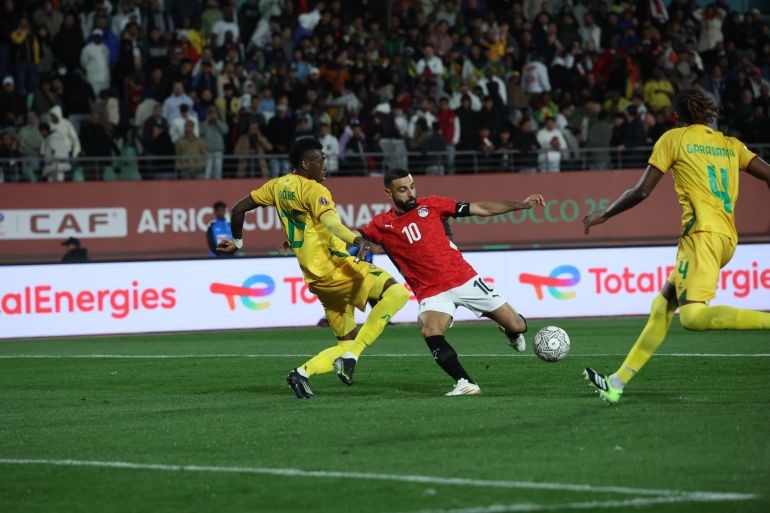
Mohamed Salah puts Liverpool controversy behind him with dramatic winner against Zimbabwe in their AFCON opener. By News Agencies Published On 23 Dec 202523 Dec 2025 Click here to share on social media share2 Share Mohamed Salah snatched a dramatic stoppage-time winner as Egypt came from behind to beat Zimbabwe 2-1 in their first fixture at the Africa Cup of Nations (AFCON) finals in Morocco on Monday. Egypt’s captain, starting his first game after four successive matches on the bench at Liverpool, fired home a left-footed effort in the 91st minute to earn the seven-time champions a late victory after Zimbabwe had stunned them by going ahead in the first half. Recommended Stories list of 3 itemsend of list Egypt laid an early siege to Zimbabwe’s goal, but it was the underdogs who netted first through Prince Dube in the 20th minute. It was left to Egypt’s Premier League contingent of Omar Marmoush, who equalised in the 64th minute, and talisman Salah to see them to a last-gasp victory. Salah had come into the tournament in Morocco under the spotlight following a fiery outburst after being dropped by the Premier League champions, and struggled to find his rhythm for most of the match at the Grande Stade d’Agadir. When it counted, however, he swept home the winner to see Egypt join South Africa, who beat Angola 2-1 earlier in Marrakesh, at the top of Group B. It was as much as Egypt deserved, breaking a run of six successive draws over the last two editions of the Cup of Nations. They had four good chances in the opening 10 minutes as they put Zimbabwe under intense pressure but fell behind when Emmanuel Jalai fed the ball inside for Dube, who turned in possession and placed his effort into the bottom left corner. It could have been 2-0 as Daniel Msendami’s pace set up a scrambled chance for Washington Navaya that Egypt goalkeeper Mohamed El Shenawy managed to gather before it could be bundled over the line. Salah, centre, puts Egypt ahead 2-1 in stoppage time [Stringer/Anadolu via Getty Images] Marmoush sole effect Marmoush equalised in the 64th minute, picking up a long pass on the left wing before cutting inside and firing home with his right foot from an acute angle for a superb solo goal. Advertisement “We created many chances without being able to score early, but in the end everything went well,” Marmoush said. “We kept a good mindset and finished the match strongly. We will learn from everything that happened in tonight’s game.” Substitute Ahmed Zizo should have headed home at the back post from Mohamed Hamdy’s inviting cross but put his effort wide, and missed again four minutes from the end when Salah teed him up with a good chance. It was left to Salah to secure the three points, holding off his marker to bring the ball under control before steering it home for his first goal since early last month. In the next set of Group B fixtures, Egypt meet South Africa in Agadir on Boxing Day while Zimbabwe and Angola clash on Friday in Marrakesh. Adblock test (Why?)
Russia-Ukraine war live: One killed in Kyiv, dozens injured across Ukraine

blinking-dotLive updatesLive updates, The large-scale Russian attacks come two days after US-led peace talks end in Miami. Published On 23 Dec 202523 Dec 2025 Click here to share on social media share2 Share Adblock test (Why?)
Video: Maduro rejects Trump’s warning against ‘acting tough’

NewsFeed US President Donald Trump warned Nicolas Maduro to ‘not play tough’ and to step down on Monday, while the Venezuelan leader said Trump should focus on the issues in his own country. Trump told reporters the US will keep 1.9 million barrels of oil that were seized near Venezuela in December. Published On 23 Dec 202523 Dec 2025 Click here to share on social media share2 Share Adblock test (Why?)
At least three killed in Israeli attack on southern Lebanon’s Sidon
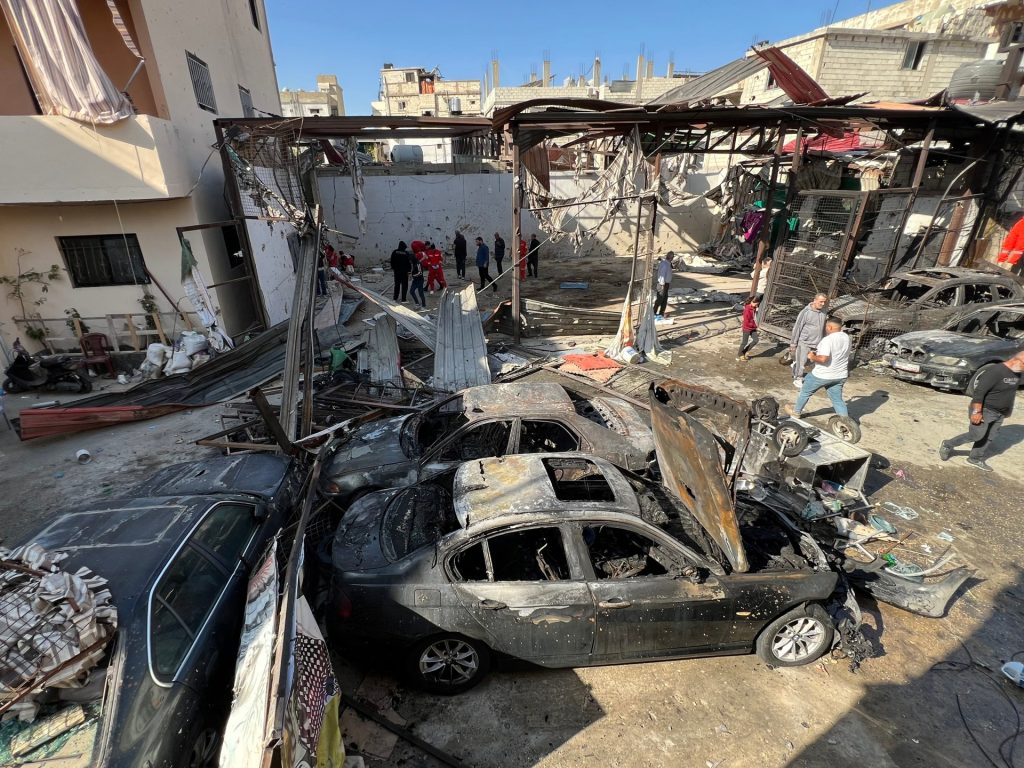
Deadly Israeli air strike is latest in Israel’s near-daily violations of 2024 ceasefire agreement with Hezbollah. At least three people have been killed in an Israeli attack near the southern Lebanese city of Sidon, the country’s National News Agency (NNA) is reporting, in the latest Israeli breach of a ceasefire agreement with Hezbollah. Lebanon’s Ministry of Health said on Monday that the three people were killed in an Israeli air strike on a vehicle on Quneitra Road in the southern Sidon district, according to NNA. Recommended Stories list of 4 itemsend of list The Israeli military said in a statement that it had targeted Hezbollah members in the Sidon area, without providing further details. The deadly strikes come a day after another Israeli attack on southern Lebanon on Sunday killed one person and wounded two others. The Israeli army said it killed a Hezbollah member in that attack. Israel has repeatedly violated the November 2024 ceasefire agreement with the Lebanese group, carrying out near-daily attacks across Lebanon, particularly in the south, that have drawn widespread condemnation. Between January and late November, Israeli forces carried out nearly 1,600 strikes across Lebanon, according to data compiled by the Armed Conflict Location and Event Data Project (ACLED). Late last month, the United Nations said at least 127 civilians had been killed in Israeli attacks on Lebanon since the ceasefire took effect, prompting a call from the United Nations human rights office for a “prompt and impartial” investigation. Delegations meet in southern Lebanon Israel’s attacks have continued despite the November 2024 ceasefire agreement, which includes provisions for Hezbollah’s disarmament in parts of southern Lebanon and the withdrawal of Israeli forces. Advertisement On Saturday, Prime Minister Nawaf Salam said Lebanon was close to completing the disarmament of Hezbollah in the area south of the Litani River. That is a key provision of UN Security Council Resolution 1701, which designates the zone between the Litani River and the Israeli border as an area where only the Lebanese army and UN peacekeepers are permitted to operate. Hezbollah has long rejected calls for full disarmament, saying its weapons are necessary to defend Lebanon against Israeli attacks and occupation. Hezbollah leader Naim Qassem has consistently said the group will end its military presence south of the Litani River in line with the ceasefire, but insists it will retain its weapons elsewhere in Lebanon. Under the 2024 ceasefire agreement, Israeli forces were also required to withdraw fully from southern Lebanon, south of the Litani River, by January. But Israeli troops have only partially pulled back and continue to maintain a military presence at five border outposts inside Lebanese territory. Hezbollah officials have previously said the group would not fully implement its commitments under the ceasefire while Israeli forces remain deployed in southern Lebanon. Meanwhile, a committee overseeing the ceasefire agreement continues to hold talks in southern Lebanon as Israel and the United States increase pressure on Hezbollah to disarm. Civilian and military delegations from Israel and Lebanon met in the southern town of Naqoura on Friday in closed-door discussions. Following the talks, Lebanese President Joseph Aoun met with diplomat Simon Karam, who has been appointed as Lebanon’s chief civilian negotiator. Hezbollah has been critical of the appointment of Karam, who has previously served as the ambassador of Lebanon to the US. In a statement, the Lebanese presidency said Aoun stressed that enabling tens of thousands of displaced Lebanese civilians to return to their villages and homes was “an entry point for addressing all other details” of the agreement. Aoun said the committee’s next meeting is scheduled for January 7. He also welcomed a separate diplomatic agreement reached in Paris between the US, France and Saudi Arabia to organise an international conference in early 2026 to support the Lebanese army and internal security forces. Adblock test (Why?)
Cambodia-Thailand fighting continues as ceasefire talks loom
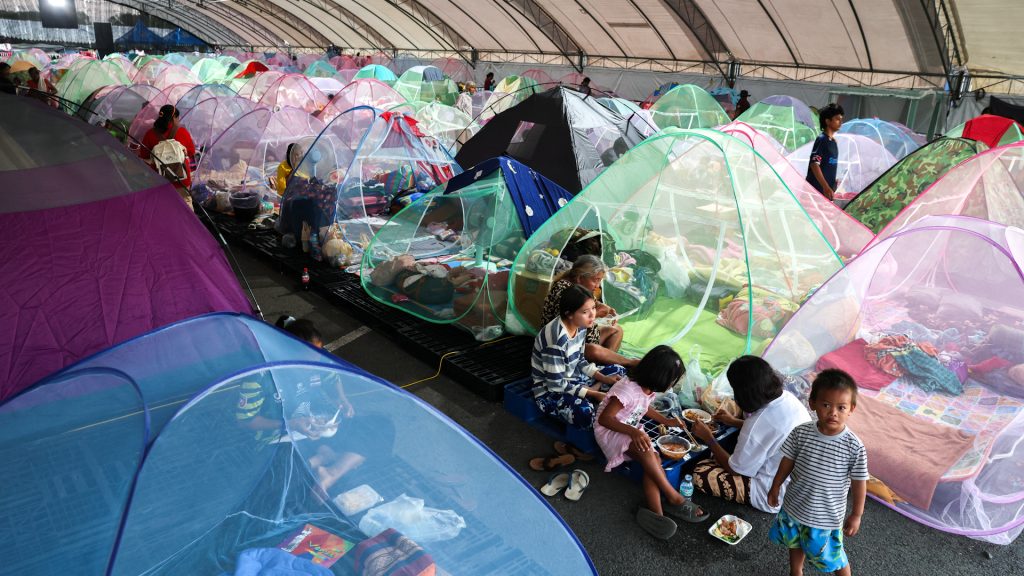
NewsFeed Fighting between Cambodia and Thailand continues despite talks, with communities in Phnom Penh facing fear and economic anxiety, while life in Bangkok appears largely unaffected. Al Jazeera’s Assed Baig and Tony Cheng report on the contrasting realities on both sides of the border. Published On 22 Dec 202522 Dec 2025 Click here to share on social media share2 Share Adblock test (Why?)
Texas town battles nonstop noise from bitcoin mine
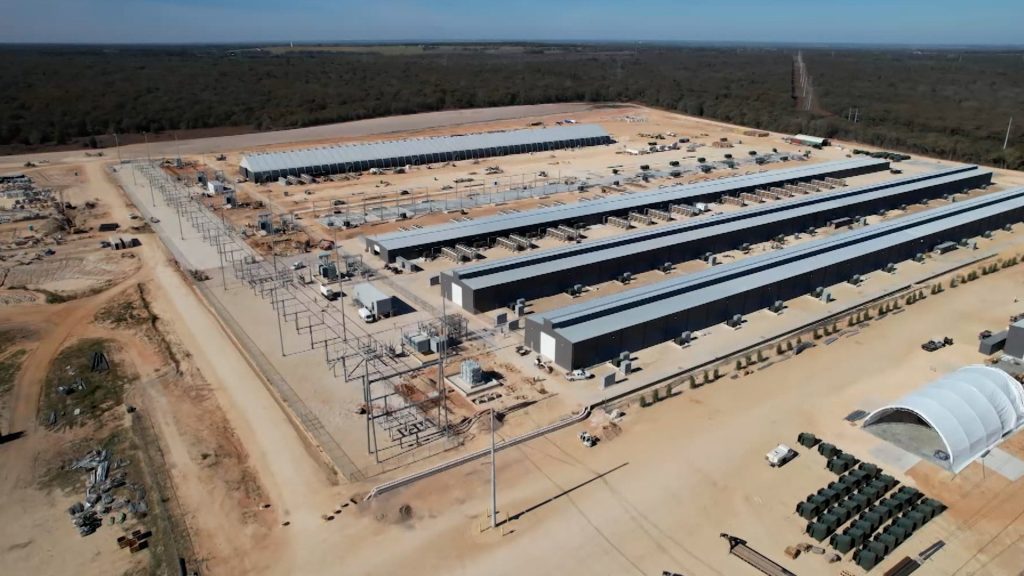
NewsFeed A rural Texas community says nonstop noise from a bitcoin mine is destroying their lives. Residents in Hood County describe the 24/7 hum of cooling fans as “torture,” while operators defend the project as a major jobs and tax boost. Al Jazeera’s Phil Lavelle says AI data centres may bring even bigger battles ahead. Published On 22 Dec 202522 Dec 2025 Click here to share on social media share2 Share Adblock test (Why?)
Malaysian court rejects Najib’s bid to serve sentence under house arrest
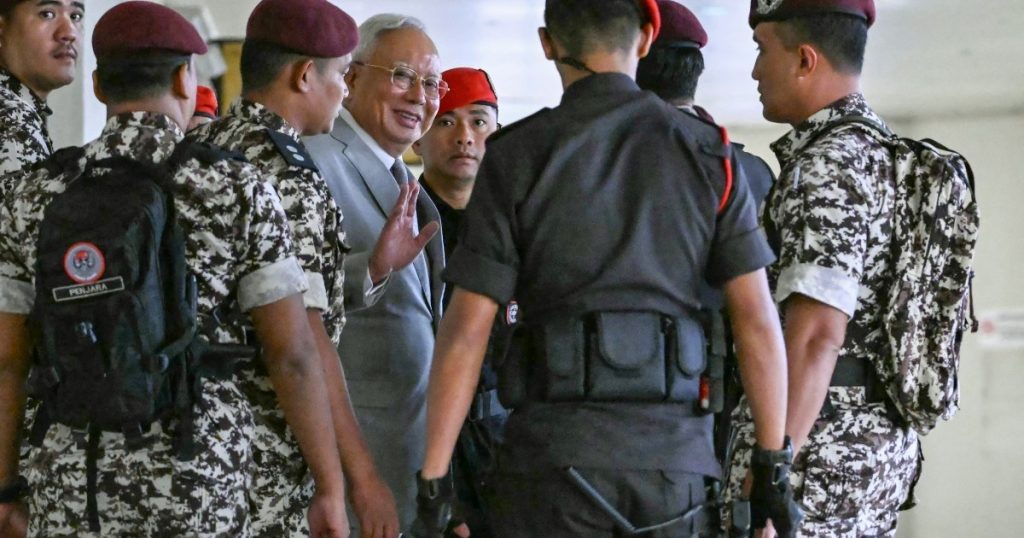
High Court says a royal document allowing the ex-PM’s transfer to house arrest was not valid. By News Agencies Published On 22 Dec 202522 Dec 2025 Click here to share on social media share2 Share A court in Malaysia has dismissed jailed former Prime Minister Najib Razak’s bid to serve the remainder of his sentence for corruption at home, ruling that a royal document allowing the move was not valid. The ruling on Monday dealt another blow to Najib, who has been imprisoned since August 2022 for his role in the multi-billion dollar 1MDB scandal. Recommended Stories list of 4 itemsend of list Najib had sought to compel Malaysian authorities to confirm the existence of and execute a royal order that he said was issued last year as part of a pardon by the then-king, entitling him to serve the remainder of his sentence at home. Kuala Lumpur High Court judge Alice Loke said on Monday that the existence of the order was not in dispute, but the former king should have consulted the country’s pardons board before making the order to allow Najib house arrest. “The court ruled that the king could not grant house arrest independently of the pardons board,” she wrote. “I’m of the view that a house arrest order is not capable of execution, no legal provision for such a mechanism in Malaysia.” Najib did not show much emotion, and later smiled when his lawyer described the ruling as “shocking” after the judge left the courtroom. The lawyer Muhammad Shafee Abdullah told The Star newspaper that the former leader will appeal the verdict. Najib denies wrongdoing, alleging that Malaysian financier Low Taek Jho duped him. Low, thought to be the mastermind of the scandal, remains at large. Former Malaysian parliament member Charles Santiago, who had pushed for the prosecution of Najib, hailed Monday’s ruling in a social media post. Advertisement “Faith in the judiciary restored,” he wrote. The country’s pardons board announced last year that it had reduced to six years the original sentence of Najib, who was convicted and sent to jail for 12 years for corruption. Najib is set to be released on August 23, 2028, and fines imposed on him were reduced to 50 million ringgit ($10.6m) from 210 million ringgit ($44.5m), according to the pardons board. Separately on Friday, the former leader will also find out if he is acquitted or convicted in a second graft trial that ties him directly to the 1MDB scandal. The High Court will rule on four charges of abuse of power to obtain over $700m from 1MDB that went into Najib’s bank accounts, and 21 counts of money laundering involving the same amount. If found guilty, Najib faces up to 20 years in prison for each count of abuse of power and up to five years for each of the money laundering charges. Najib set up the 1MDB development fund shortly after he took office in 2009. Investigators allege at least $4.5bn was stolen from the fund and laundered by Najib’s associates through layers of bank accounts in the US and other countries. The funds were allegedly used to finance Hollywood films and extravagant purchases that included hotels, a luxury yacht, art and jewelry. A national outrage over the 1MDB scandal led to the historic 2018 election defeat of the party that had governed Malaysia since independence from the United Kingdom in 1957. Despite his conviction, Najib still holds clout in his party, the United Malays National Organization, which is now part of Prime Minister Anwar Ibrahim‘s unity government that took power after elections in 2022. Adblock test (Why?)
New clashes erupt on Thai-Cambodia border as ASEAN convenes peace talks
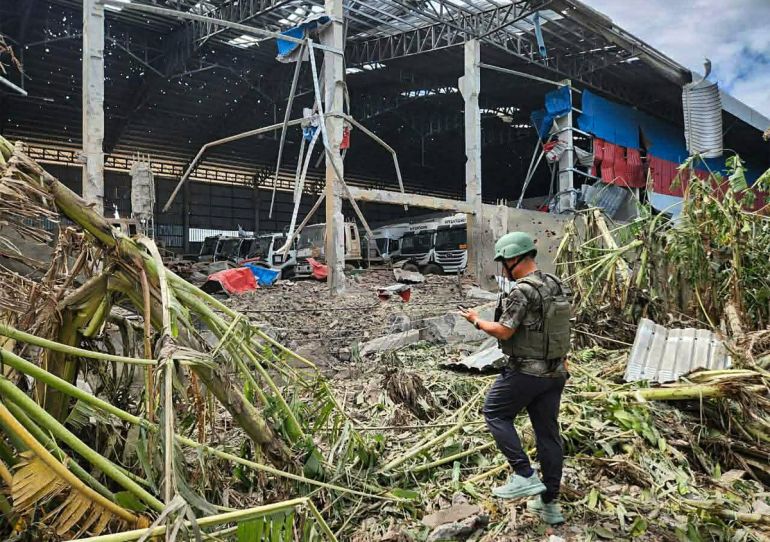
DEVELOPING STORYDEVELOPING STORY, Fighting resumes hours before regional foreign ministers meet in Malaysia to discuss steps to de-escalate hostilities. New fighting has broken out along the Thailand-Cambodia border, hours before Southeast Asian foreign ministers are due to meet in Malaysia to find a resolution to the deadly conflict between the two neighbours. The clashes early on Monday threaten to undermine diplomatic efforts by the Association of Southeast Asian Nations (ASEAN) to revive a ceasefire deal that was first brokered in July by Malaysia and United States President Donald Trump. Recommended Stories list of 3 itemsend of list The conflict, since it resumed on December 8, has killed at least 40 people and displaced nearly one million people on both sides of the border. The Cambodian Ministry of National Defence on Monday accused Thailand of deploying F-16 fighter jets that dropped four bombs in the Banteay Meanchay province and of firing “toxic gas” in the area of the Prey Chan village, according to the Agence Kampuchea Press state news agency. “The Ministry emphasised that Cambodian forces are monitoring the situation closely. They remain brave and steadfast in their defence against the aggressors, remaining vigilant in their duty to protect Cambodia’s territorial integrity,” the report said. Video footage posted online showed civilians, including young children, sheltering from the bombardment. Some of the children could be heard wailing as the residents crowded together. There were no immediate reports of casualties. Thailand’s Morning News TV 3 reported an “exchange of fire” in the Sa Kaeo Province early on Monday morning, with Cambodian forces firing “heavy weapons”, igniting fires and damaging homes in the Khok Sung district. Advertisement The Thai government has yet to comment on the renewed fighting. Earlier on Monday, Cambodian Prime Minister Hun Manet’s office announced that as of Sunday evening, an estimated 525,000 civilians have been displaced on their side of the border. Thai authorities have reported that 400,000 people were displaced in their territory. Thai Prime Minister Anutin Charnvirakul, meanwhile, insisted that Thailand has never acted as the aggressor, telling reporters on Sunday that nearly all areas “previously been encroached upon” by Cambodian forces have now been reclaimed. A man with protective gear inspects a garage damaged after a reported Thai air strike in Poipet town, Banteay Meanchey province, Cambodia [Handout: Agence Kampuchea Press Photo via AFP] In the Malaysian capital, Kuala Lumpur, representatives from Thailand and Cambodia were set to attend the ASEAN gathering, their first face-to-face meeting since the fighting resumed. Cambodian Minister of Foreign Affairs Prak Sokhonn will attend the meeting, according to his office. Malaysia said the ASEAN talks, chaired by Malaysian Minister of Foreign Affairs Mohamad Hasan, will consider steps the regional bloc can take to help de-escalate the tensions and end the fighting. An ASEAN team is expected to present satellite-monitoring data provided by the US, alongside field observations. Malaysian Prime Minister Anwar Ibrahim has expressed hope that the meeting will enable Thailand and Cambodia to negotiate openly, resolve differences and achieve a fair and lasting solution. Last week, he told reporters that Thailand’s Anutin and Cambodia’s Hun Manet were both “keen to achieve an amicable resolution as soon as possible”. The US Department of State on Sunday urged both sides “to end hostilities, withdraw heavy weapons, cease emplacement of landmines, and fully implement the Kuala Lumpur Peace Accords”. It said it welcomed “ASEAN leaders coming together this week to support Cambodia and Thailand fully honoring their commitments to end this conflict”. In addition to the regional push, the US and China have pursued separate diplomatic efforts to end the conflict, although neither has yielded tangible results. Bangkok and Phnom Penh continue to trade blame for violations of the July ceasefire, as well as another extended agreement signed in October. Adblock test (Why?)

